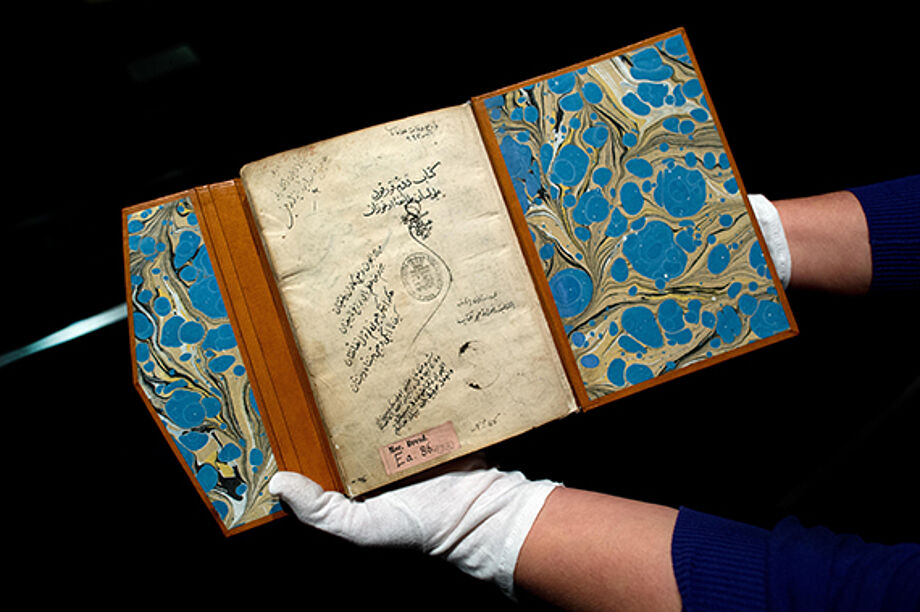Kitab-i Dedem-Korkut

In the "Book of Dede Korkut", more than 1000-year-old heroic stories of the nomadic Oghuz, who are considered the ancestors of all Turkic peoples, are handed down. The collection, attributed to the historically intangible wise bard Dede Korkut, is therefore revered as a national epic by Turks, Azerbaijanis and Turkmen.
The Dresden manuscript from the 16th century (Mscr.Dresd.Ea.86) contains 12 tales, making it the most comprehensive of the textual witnesses known today.
In 2018, the Dede Korkut stories were inscribed by the UNESCO World Heritage Commission on the "Representative List of the Intangible Cultural Heritage of Humanity".

The Dresden manuscript is available in its entirety in the Digital Collections of the SLUB.
The original manuscript is not on display for conservation reasons. An exclusive reprint can be viewed in the Collections Reading Room.